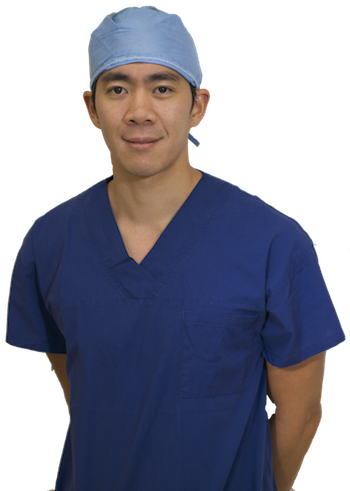Foods to avoid around surgery, Nutrition, and Recipes Part 2
Part 2 of our article surrounding nutrition also comes from Rohan Smith (BHSc (Nut. Med), A.NUTR, ANTA, ACNEM) from Elemental Health and Nutrition. Rohan can be found at: http://elementalhealthandnutrition.com.au and his office on (08) 8332 2271. Free 15 minute consultations are available – please book through his site.
Nutrition is highly important, and several studies also show the importance of foods to take/avoid around some kinds of surgery. If you missed part 1, please follow the link from our facebook page. There is good evidence for certain types of fractures that Vitamin C can decrease the risk of developing nerve related issues after broken wrists – so in similar theory, we think that there are foods to take or avoid that may maximise your peri-operative period. Staying healthy and hydrated leading up to your surgery is important – please read the below article from Rohan Smith which is Part 2 in the nutrition series. Join us next friday for our next instalment which focusses on Chiropractic care. Please comment on our Facebook Page if you have other articles that you would find useful, and your comments on this article.
What to AVOID before surgery
Avoid any supplements containing vitamin C for 24 hours prior to surgery, as it will reduce the effectiveness of the anaesthetic.
It is also important to avoid supplementation that thins the blood for at least 5 days prior which includes: fish oil, coenzyme Q10, vitamin E in doses higher than 400IU per day, turmeric and ginger.
Nutrition and Wound Healing
After surgery, the body begins to heal via coagulation and inflammatory processes. Inadequate nutrition post-surgery can lead to an increased risk of infection and a delay in wound healing via decreased formation of new blood vessels, reduced production of cells that produce structural proteins such as collagen and altered immune function. Optimal recovery involves supporting both process with the necessary nutrients.
Increased intake of the following foods is suggested to facilitate recovery;
| Nutrient | Healing action | Foods |
| Protein | Facilitates new blood vessel formation, collagen synthesis and provides substrates for the enzymes involved in wound healing. Inadequate intake delays wound healing, increases risk of infection and decreases the strength of skin and fascia. | Increasing intake from lean sources such as chicken, eggs, turkey, nuts and seeds, and practitioner quality protein powder and collagen protein combined is recommended. |
| Zinc | Key for wound healing and immune function | Eggs, red meat, seafood and nuts |
| Vitamin C | Key for collagen synthesis, wound integrity and immune function | Citrus fruits, capsicum, berries, tomato and leafy greens |
| Vitamin A | Reduces risk of infection and encourages wound healing and skin growth, improves skin strength | Eggs, oily fish, orange fruits and vegetables, dark green vegetables |
| Selenium | Facilitates immune function and is a cofactor for glutathione function | Brazil nuts, eggs, poultry, wholegrains |
| Arginine | An amino acid which promotes healing and is essential during wound induced stress | Almonds, barley, beans, brazil nuts, cashews and garlic |
| Vitamin E | Anti-inflammatory, speeds up wound healing, increases skin thickness and can reduce pain | Egg yolk, almonds, apricot oil, wheat germ and sunflower seeds |
| Iron | Increases the body’s resistance to infection, required for collagen synthesis and prevents anaemia associated with blood loss | Red meats, almonds, apricots, avocado, seeds and parsley |
| Glutamine | An amino acid which provides energy for immune cells involved in the inflammatory response and aids antioxidant function | Beans, cottage cheese, legumes, protein and oats |
| Water | Adequate hydration is vital for wound healing and detoxification | Ideally bottled or filtered water |
Another way to get maximum nutrition in whilst healing is to incorporate smoothies and eat a varied diet high in anti-inflammatory and anti-oxidant rich foods and bone broths.
Here are a few suggestions;
Healing Boosting Smoothie
- 1 serve of protein and collagen powder
- 2 tbsn of oats
- 1 cup of leafy green vegetables
- 1 tbsn pumpkin seeds
- 5 x almonds
- 2 x brazil nuts
- ½ cup berries
- ½ tsp of turmeric
- 1 cup of almond milk
Salmon with healing and detoxifying salad
- 1 x Salmon fillet per person baked in the oven
Ingredients
- 2 cloves of garlic, chopped and fried
- 1 medium onion, copped and fried
- 1 tin of organic lentils
- 1 large beet, peeled and shredded
- 1 head green cabbage, finely chopped
- 1 fennel bulb, chopped
- 1 bunch of kale, de-stemmed and shredded
- 1/2 cup fresh coriander, finely chopped
- Zest of 1 lemon
Dressing
- 1/4 cup lemon juice
- 1/3 cup tahini
- 1 Tbsp. fresh ginger, grated
- 1/4 cup raw unfiltered apple cider vinegar
- 1 Tbsp. raw honey or 5 drops for stevia
Instructions
Detox Salad
- Combine all the first set of ingredients in a large mixing bowl.
Detox Salad Dressing
- Combine lemon juice, tahini, ginger, apple cider vinegar and honey in a food processor or blender and blend for 1-2 minutes, or until smooth and creamy.
- Toss the salad ingredients with the dressing. Plate and top off with a generous sprinkling of the fresh lemon zest.
Bone Broth
- Bones from raw or cooked meat (avoid chicken frames)
- 2 carrots
- 2 celery sticks
- 2 brown onions
- 1/4 cup of apple cider vinegar
- Water (enough to cover bones and a bit more)
Method
- Place all ingredients (veges to be chopped) in a crock pot and simmer for 24 hours on low
- Remove bones and strain
- Consume half a cup per day
Foods to avoid
Immediately after surgery, for a period of 2-3 days, it is recommended to avoid foods high in Vitamin K due to the role it plays in the formation of blood clots. These include:
- Cruciferous vegetables – Broccoli, cauliflower, brussel sprouts, cabbage and kale
- Green, garbanzo and soy beans
- Lentils
- Liver
Nutrition and Blood Loss
During surgery blood loss inevitably occurs, so it is important to provide the body with the necessary nutrients to counteract this. Foods high in iron, vitamin B6, folate and vitamin B12 aid in replenishing blood stores and include:
- Leafy greens – consume with a citrus source for maximum absorption
- Meats and liver
- Beans and legumes
- Nuts and seeds
It may be necessary to supplement with iron if large amounts of blood were lost and this can be determined by testing through your qualified practitioner.
Natural pain relief and anti-inflammatories
The pain experienced during post-surgery is a result of trauma to the bone and surrounding tissues and the inflammatory process as the wound heals. The use of NSAIDs may provide relief, however they act by masking the symptoms and delay the healing process.
Natural alternatives can be used which reduce pain and facilitate the body to heal at the same time.
| Nutrient | Actions |
| Omega 3 fish oil (DHA/EPA) | Reduces inflammation |
| Phenylalanine | Precursor to neurotransmitter dopamine. Reduces pain perception |
| 5-HTP | Increases serotonin to reduce pain perception |
| Curcumin | Reduces inflammation and exerts antioxidant effects |
| Boswellia | Reduces inflammation |
| Ginger | Reduces inflammation |
| Magnesium | Blocks pain receptors in the brain |
Optimising your nutritional status well in advance will ensure that you have the greatest chance of a speedy and complication free recovery.
References
Burgess L, Phillips S and Wainwright T 2018, ‘What Is the Role of Nutritional Supplements in Support of Total Hip Replacement and Total Knee Replacement Surgeries? A Systematic Review’, Nutrients 2018, vol. 10, no. 820, pp. 1-5, viewed 24th September 2018, https://www.ncbi.nlm.nih.gov/pmc/articles/PMC6073268/
Hegazi R, Hustead D and Evans D 2014, ‘Preoperative standard oral nutrition supplements vs immunonutrition: results of systematic review and meta-analysis’, Journal of American College of Surgeons’, vol. 219, no. 5, pp. 1078-1087, viewed 24th September 2018, https://www.ncbi.nlm.nih.gov/pmc/articles/PMC4902354/
Somanchi M, Tao X and Mullin G 2011, ‘The facilitated early enteral and dietary management effectiveness trial in hospitalised patients with malnutriton’, Journal of Parenteral and Enteral Nutrition, vol. 35, no. 2, pp. 209-216, viewed 24th September 2018, https://www.ncbi.nlm.nih.gov/pubmed/21378250
Femoroacetabular Impingement
FAI is known as impingement of the hip, leading to labral tears and groin pain. LEARN MORE
MCL Tear
Our Surgeons discuss MCL injuries and how they can be managed.
Patella Dislocations
A guide to help understand the complex nature of patella dislocations.
Orthopaedics 360
Orthopaedics 360
P: (08) 7099 0188
F: (08) 7099 0171
Southern Specialist Centre
Orthopaedics 360
P: (08) 7099 0188
F: (08) 7099 0171
Health @ Hindmarsh
Orthopaedics 360
P: (08) 7099 0188
F: (08) 7099 0171


